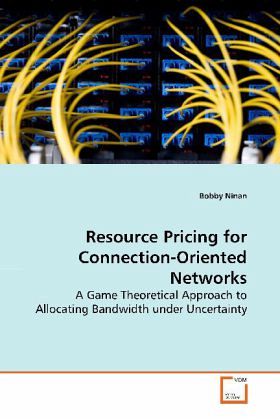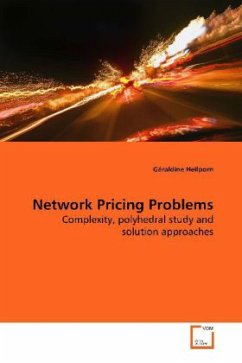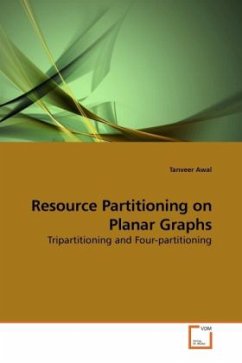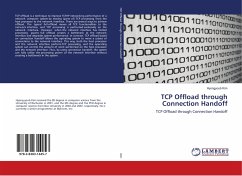
Resource Pricing for Connection-Oriented Networks
A Game Theoretical Approach to Allocating Bandwidth under Uncertainty
Versandkostenfrei!
Versandfertig in 6-10 Tagen
32,99 €
inkl. MwSt.

PAYBACK Punkte
16 °P sammeln!
Network pricing has important implications in therevenue generation, resource management, systemoptimization and congestion control of computernetworks. We depart from the prevalent idea ofmarginal cost pricing and provide a holistic,bi-level optimization framework to model theinteraction between network entities in a connectionoriented network. Users are treated as utilitymaximizing entities who allocate the availablebandwidth among themselves by playing a distributed,noncooperative rate game. An extension of the rateadaptation game based on Recursive Least Squares isproposed for dealing with...
Network pricing has important implications in the
revenue generation, resource management, system
optimization and congestion control of computer
networks. We depart from the prevalent idea of
marginal cost pricing and provide a holistic,
bi-level optimization framework to model the
interaction between network entities in a connection
oriented network. Users are treated as utility
maximizing entities who allocate the available
bandwidth among themselves by playing a distributed,
noncooperative rate game. An extension of the rate
adaptation game based on Recursive Least Squares is
proposed for dealing with the imperfect information
scenario. Gradient-free schemes are then developed
for revenue maximization. These are based on novel
stochastic approximation techniques such as Finite
Difference Stochastic Approximation (FDSA) and
Simultaneous Perturbation Stochastic Approximation
(SPSA). This book is aimed at researchers and
practitioners interested in developing pricing
schemes for Internet and other communication networks.
revenue generation, resource management, system
optimization and congestion control of computer
networks. We depart from the prevalent idea of
marginal cost pricing and provide a holistic,
bi-level optimization framework to model the
interaction between network entities in a connection
oriented network. Users are treated as utility
maximizing entities who allocate the available
bandwidth among themselves by playing a distributed,
noncooperative rate game. An extension of the rate
adaptation game based on Recursive Least Squares is
proposed for dealing with the imperfect information
scenario. Gradient-free schemes are then developed
for revenue maximization. These are based on novel
stochastic approximation techniques such as Finite
Difference Stochastic Approximation (FDSA) and
Simultaneous Perturbation Stochastic Approximation
(SPSA). This book is aimed at researchers and
practitioners interested in developing pricing
schemes for Internet and other communication networks.












